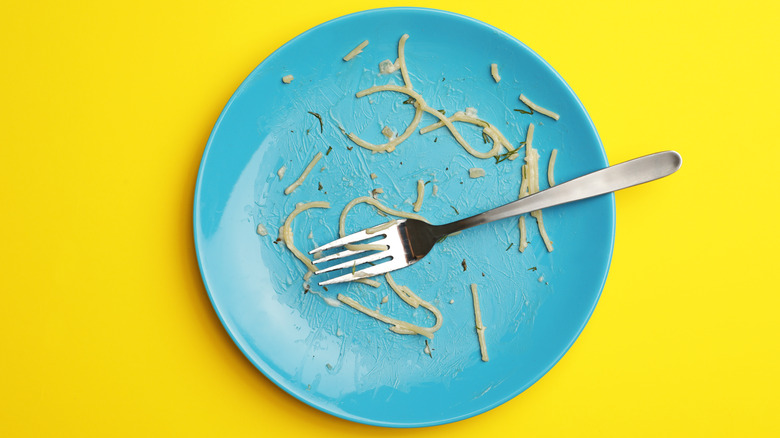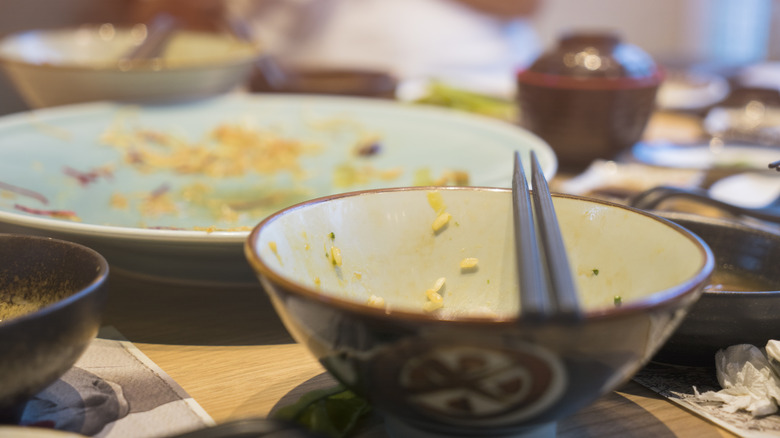Depending On Where You Are, It Might Be Rude To Eat All The Food On Your Plate
You've probably been in this awkward situation at least once in your lifetime: You're eating a nice meal with your family or friends, whether in a nice restaurant or at home. Everyone finished eating, and so did you, but you left a bit of food on your plate. Oh no, here come the judgmental stares and wise words of warning. Some might say that you're foolishly wasting food, and others might remark that there are so many undernourished people across the world, so how could you leave something on your plate and not finish your meal?
Life Foster reveals that each year, 1.3 billion tons of food are wasted, which might make you think twice about leaving bites behind. In many cultures, being part of the clean plate club is the bare minimum. When dining in India and Japan, for example, you should finish your biryani or chirashi in order to show respect and avoid waste, per The Huffington Post. In Ethiopia, this responsibility is avoided since everyone shares one large, communal plate. Finally, further proving the point that you should do your research before traveling abroad is this fact: In some countries, it's considered rude to eat everything you're served.
Dining in China? Don't finish your plate
Across the world, there are many dining etiquette rules that everyone should know about. The Travel ticks off a few: In Korea, the first bites of food are always eaten by the elderly; in Italy, you should never request condiments for your pizza; and in China, you shouldn't finish your plate. Doing so signals to the host that you're not satisified with the amount they served you, which could make them feel inadequate.
So, once you finish eating almost everything on your plate, a culminating burp is considered a compliment to the chef in China, says The Culinary Travel Guide. However, Post Magazine clarifies that this practice is long out of date in Hong Kong, so you may want to hold off on belching unless your table mates do so first. Fortunately, other Chinese dining customs are more set in stone, such as offering food to others before filling your own plate and being punctual to meal times.

